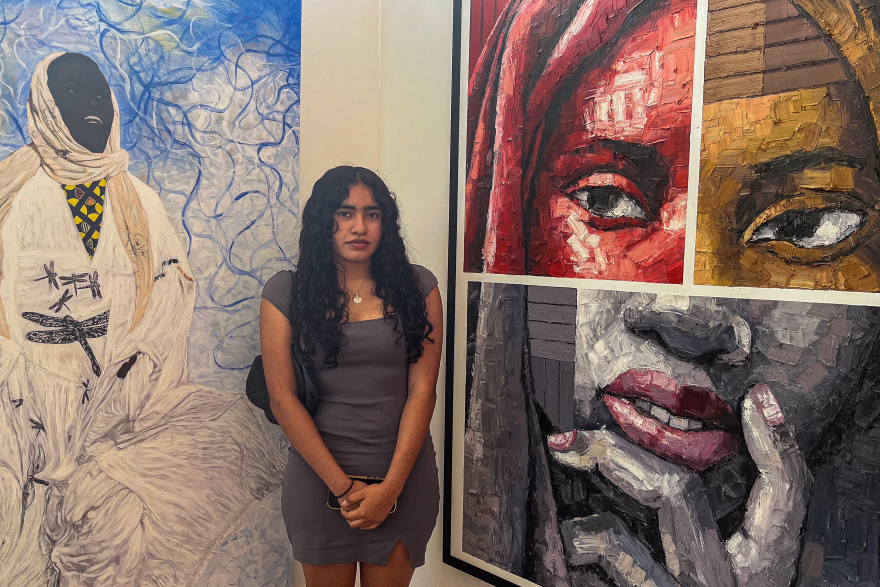Twenty-five high school students and their mentors gathered on a recent morning to immerse themselves in the rich history of Miami’s Overtown at the Black Archives Historic Lyric Theater — a place that has long-lived as a symbol of Black economic influence.
As part of the experience, students got to explore the nonprofit’s vault which houses manuscripts, documents, images, artifacts and art pieces. All help tell the story of Black Miami from 1869 to 2002.
“We have a cross which was burnt by the Ku Klux Klan to basically threaten a church not to have a Black preacher and that type of intimidation worked,” said Brianna Senter, the archives manager at the theater. “Looking at the students who came, they were just shocked that something like that happened in Miami.”

The Miami Heat School-to-work mentorship program organized the excursion for its students, who came from 12 different high schools. With the Big Sisters Big Brother nonprofit, the program pairs students with Heat front-office employees to help them prepare for college and their future endeavors.
“Honestly, coming here was a great eye opener in being able to see a bunch of things that I never knew that Miami had and the background of the Black community,” said Shailoh Reyes, 17, a student at Miami Senior High School and part of the program.
The field trip also included a screening of the documentary Crossing Overtown, which delves on Miami's history and the role it played in the national civil rights movement. It was followed by a Q&A session with the film’s director, Scott Barnett, Miami Black Police Precinct and Courthouse Museum director, Terrance Cribbs-Lorrant, Miramar Chief of Police Delrish Moss and Heat basketball legend Alonzo Mourning.
READ MORE: New film centers on the history and impact of Black Miami
“Once I learned about the history [of this community], I fell in love with it knowing that this place was the only place people of color were allowed to come,” Mourning said.
Built in 1913, the Historic Lyric Theater was one of the many entertainment centers in Miami that gave the community a sense of pride and status amid segregation. Among other places in the neighborhood, the Lyric helped Overtown earn its “Harlem of the South’ nickname.
“American history is important and especially, Black history is important,” Senter said. So outside of February, anyone can come into the Black Archives and tour and do research and find out more about their local community within Miami.”
Keep up with South Florida's arts and culture scene by signing up for The A/C newsletter. Every Wednesday, the A/C will offer a curation of stories and deep dives that celebrate South Florida's arts community. Click here to subscribe.










